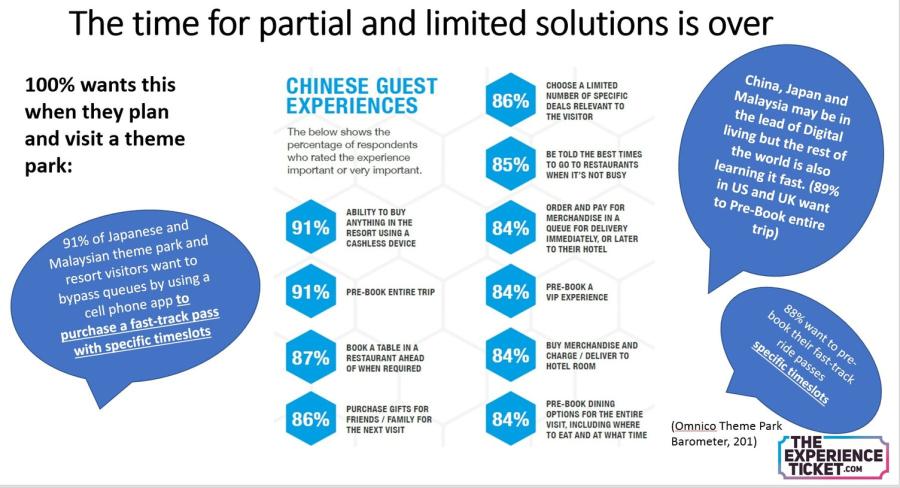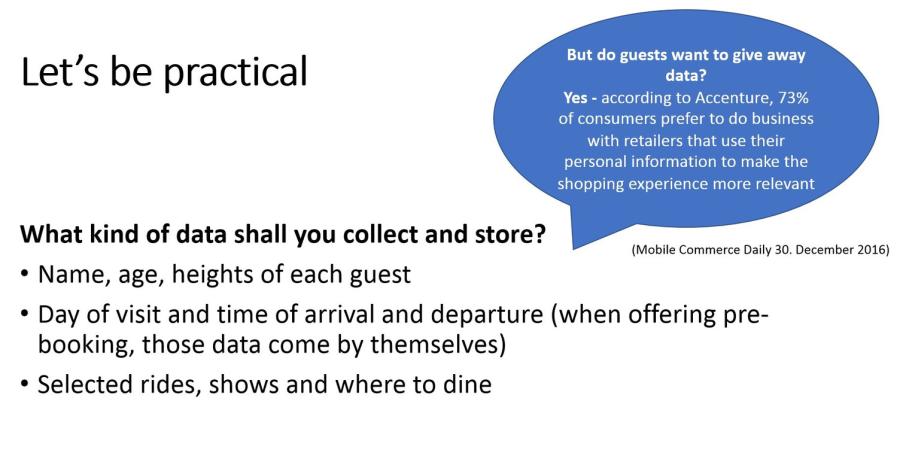How Digitalization Can Deliver More Guest Visits
While navigating the global pandemic’s impact, attractions owners and operators continue to evaluate, with the help of their suppliers, what permanent operational changes they can make that will allay guests’ fears without negatively impacting the visitor experience. Digitalization is a robust option, whereby guests digitally plan and reserve all aspects of an attraction visit and never have to queue around others.
Peter Rødbro—CEO of The Experience Ticket.com (previously named Entertainment Booking Concepts) in Copenhagen, Denmark—maintains that digitalization is a solution to not only some of the issues at attractions during a pandemic, but also provides many other advantages to attractions and their guests.
Rødbro shares insights on the benefits of digitalization with Funworld on IAAPA News Hub.
Funworld: In simple terms, define “digitalization” specifically as it applies to attractions.
Peter Rødbro: Digitalization means change of business model. For parks/attractions, it could mean offering a total queue-free and preplanned experience for guests, with the emphasis on preplanned. Guests do the preplanning and booking online themselves on the attractions’ websites or apps and use their smartphones or PCs. When the guests have completed their selection of rides, shows, and food and beverage for their party, they receive an itinerary with timeslots for the chosen activities and tickets for each member in their group. It’s what surveys show 90% of guests around the world want, the ability to prebook attractions with specific timeslots.

FW: Digitalization reduces stress for guests because they don’t have to stand waiting in queues, but what about the hassle/stress of having to completely schedule their day?
PR: What kind of humans love planning and prebooking? It’s said that there are two kinds of people—planners and laissez-faire types. Eighty percent are planners, and the rest are easygoing. When a family decides to visit an attraction, planning is already required, such as selecting the day or days, arranging for someone to look after their dog, house, etc., and they usually begin planning before their visit. The new norm is that even easygoing guests must prebook and prepay for the entrance ticket. So it’s actually not very different.
FW: You maintain that digitalization creates new and increased revenue two weeks before a physical visit and results in much higher in-park spending. How?
PR: New and increased revenue is created by prepaying in advance. If a visit is already paid for, say, two weeks in advance, your revenue is secured at that time. But if purchased at the gate, there will be a lot of competition/options in those two weeks. Upsell and cross-selling during the booking process can increase the per-ticket revenue by 30%. Actually, in a resend poll from Omnico, 18% said they would be willing to pay for the service.
Prebooked reservations result in higher in-park spending because in peak season, it’s normal for guests to spend 50% of an eight- to 10-hour visit in queues. Freeing them from queuing means they have much more time to walk around and have an ice cream or drink, shop merchandise, or have dinner.
FW: What are other advantages and benefits of digitalization to attractions?
PR: They stand in line: One visit means two visits—one digitally and one physically, and the time in between builds up the joy of expectations. The planner, who is the main decision-maker, is happy because she or he knows that little Charlie will have a ride in his favorite attraction. In The Experience Ticket.com system, for instance, no one can be booked if the personal data they enter is not in compliance with the attraction’s restrictions. Finally, guests are in control and have planned their visit themselves.
FW: With regards to gathering personal data about guests, what about privacy issues if guests don’t want their personal information, preferences, etc., to be gathered and stored?
PR: With regards to authorities tracking and tracing people, as you know, there has been very strong resistance to this in many places. Privacy can be an issue. However, if guests see they get a better experience, they don’t mind giving data, as 70% are OK with it, according an Accenture survey.
FW: Many guests enjoy visiting a park/attraction spontaneously and may not wish to be forced to plan their day. How can attractions accommodate these guests?
PR: It’s always important to let the guest decide how to experience a park or attraction. So those 20% or so of guests should, of course, be able to queue as before, or they can book ride by ride, adding additional rides on-site when visiting. It is a question for the attraction management to decide, not the booking system.

